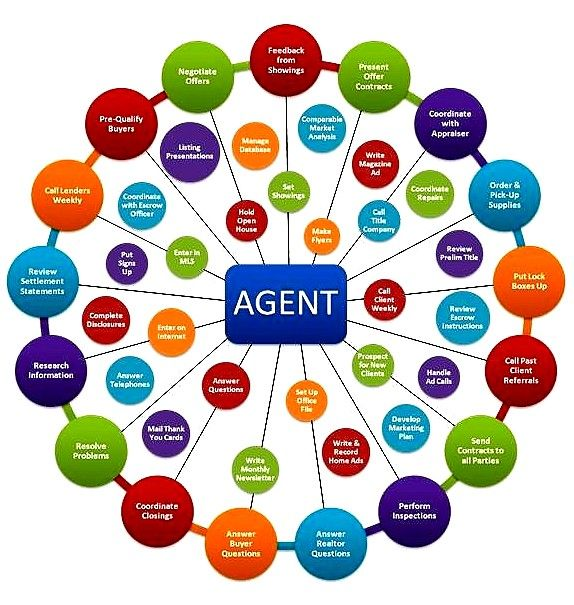Recognizing the Key Differences In Between a Realtor and Genuine Estate Brokers for an Effective Residential Property Purchase
Navigating the complexities of realty transactions requires an understanding of the unique functions played by Realtors and actual estate representatives. Both are licensed specialists, the nuances in their credentials and ethical commitments can considerably affect the outcome of your residential or commercial property dealings. Realtors, bound by the strict code of ethics of the National Organization of Realtors, assure a level of stability that may not be assured with all realty representatives. With the possible to effect openness and settlement efficacy, choosing the appropriate expert becomes a pivotal choice. What other factors should be taken into consideration for a smooth transaction?
Defining Real Estate Professionals and Representatives


In the realty sector, distinguishing between a Real estate professional and a property agent is crucial for recognizing their unique duties and credentials. A realty agent is a specialist who has actually acquired a permit to help purchasers and sellers in actual estate transactions. They serve as middlemans in the trading of properties, making sure smooth communication and arrangement between the parties involved. Representatives are accountable for detailing properties, carrying out market analyses, and assisting clients via the complexities of real estate purchases, consisting of agreement prep work and closing treatments.
On the various other hand, a Realtor is a licensed real estate representative that is additionally a member of the National Association of Realtors (NAR) While all Realtors are real estate agents, not all genuine estate agents are Realtors, making this distinction necessary for customers looking for a specialist with a dedication to moral practices.
Licensing and Qualifications
Obtaining a property permit is the foundational action for individuals aspiring to come to be either a property representative or a Real estate agent. Elizabeth Leanza Synergy Realty Realtor. This procedure commonly involves completing an established number of pre-licensing educational hours, passing a state-administered exam, and meeting any kind of added state-specific requirements. The academic curriculum usually covers essential topics such as property concepts, property regulations, contracts, and financing, gearing up candidates with extensive market expertise
While all Realtors are genuine estate representatives, not all actual estate representatives are Realtors. To come to be a Real estate agent, a certified genuine estate representative must sign up with the National Organization of Realtors (NAR), which calls for adherence to a stringent collection of requirements and completion of additional education and learning.
Ethical Specifications and Codes
Promoting moral standards is a foundation of professional method in the real estate sector. These standards differentiate a Real estate professional from a general genuine estate representative, affecting exactly how they conduct business. Realtors, participants of the National Organization of Realtors (NAR), abide by a strict Code of Ethics, developed in 1913, which mandates sincerity, stability, and professionalism and reliability. This code consists of 17 short articles focusing on responsibilities to customers, the general public, and other Real estate agents, covering concerns like client confidentiality, honest marketing, and fair treatment.
On the other hand, property agents should follow state licensing regulations, which offer a standard of ethical habits but might not be as extensive or stringent as the NAR's Code of Ethics. While agents are obliged to operate lawfully and relatively, the absence of a generally applied ethicality can lead to irregularity in method standards.
For consumers, understanding these distinctions is crucial - Elizabeth Leanza Synergy Realty Realtor. A Real estate professional's dedication to a higher ethical criterion can supply added guarantee of professionalism and reliability and accountability. When picking in between a Real estate agent and a genuine estate representative, acknowledging the relevance of moral codes can lead customers towards an expert who straightens with their assumptions for ethical conduct in property deals

Effect On Transactions
Comprehending the ethical requirements that Realtors follow offers a structure for examining their effect on realty transactions. Realtors, as participants of the National Organization of Realtors (NAR), are bound by a strict Code of Ethics, which considerably affects their interactions and negotiations in residential or commercial property transactions. This adherence to ethical practices makes sure openness and stability, fostering trust in between all events involved. Such count on is critical for a successful purchase, as it can improve interaction and promote smoother negotiations.
The Real estate professional's dedication to moral standards translates into a more professional and trusted solution, often resulting in quicker and more efficient purchases. Their commitment to act in the most effective passions of their customers can cause far better results, such as protecting desirable terms or determining prospective problems early while doing so. Furthermore, Real estate agents are geared up with extensive market expertise and sources, enhancing their Go Here capability to browse complicated transactions expertly.
In contrast, realty representatives who are not Realtors might not be bound by the very same strict moral guidelines. This difference can affect the transaction procedure, possibly presenting irregularity in solution top quality and customer contentment levels. Elizabeth Leanza Synergy Realty Realtor. Ultimately, the effect of a Realtor's moral commitment can be considerable, advertising positive experiences and effective building purchases
Choosing the Right Expert
Picking the proper realty specialist is an important step in making sure an effective residential or commercial property purchase. The choice between a Realtor and a genuine estate representative hinges on a number of elements, including the details needs of the deal and the level of expertise needed. Real estate agents are participants of the National learn the facts here now Association of Realtors (NAR) and adhere to a stringent code of principles, which might be useful for clients looking for a specialist bound by heightened moral requirements. This association can provide an additional layer of depend on and guarantee in the handling of intricate transactions.
On the other hand, real estate agents that are not Realtors can still offer high levels of solution and know-how. Their abilities and experience must be evaluated based upon their track document, neighborhood market understanding, and customer testimonies. When selecting between these professionals, consider their knowledge with the sort of property entailed and their arrangement skills, which check out this site are essential for accomplishing beneficial terms.
Ultimately, the choice ought to be notified by extensive research and personal interviews to evaluate compatibility and interaction style. This guarantees that the chosen specialist aligns with the client's goals and assumptions, leading the way for a seamless home deal.

Conclusion
In recap, comparing Realtors and actual estate agents is crucial for navigating residential property purchases effectively. Realtors, as participants of the National Association of Realtors, stick to a strict code of values, making certain higher liability and cultivating trust fund. This dedication to honest standards enhances interaction and arrangement processes, resulting in much more efficient transactions. Picking a Real estate agent can dramatically boost the overall experience and confidence in the buying or marketing procedure, inevitably adding to more effective residential property transactions.